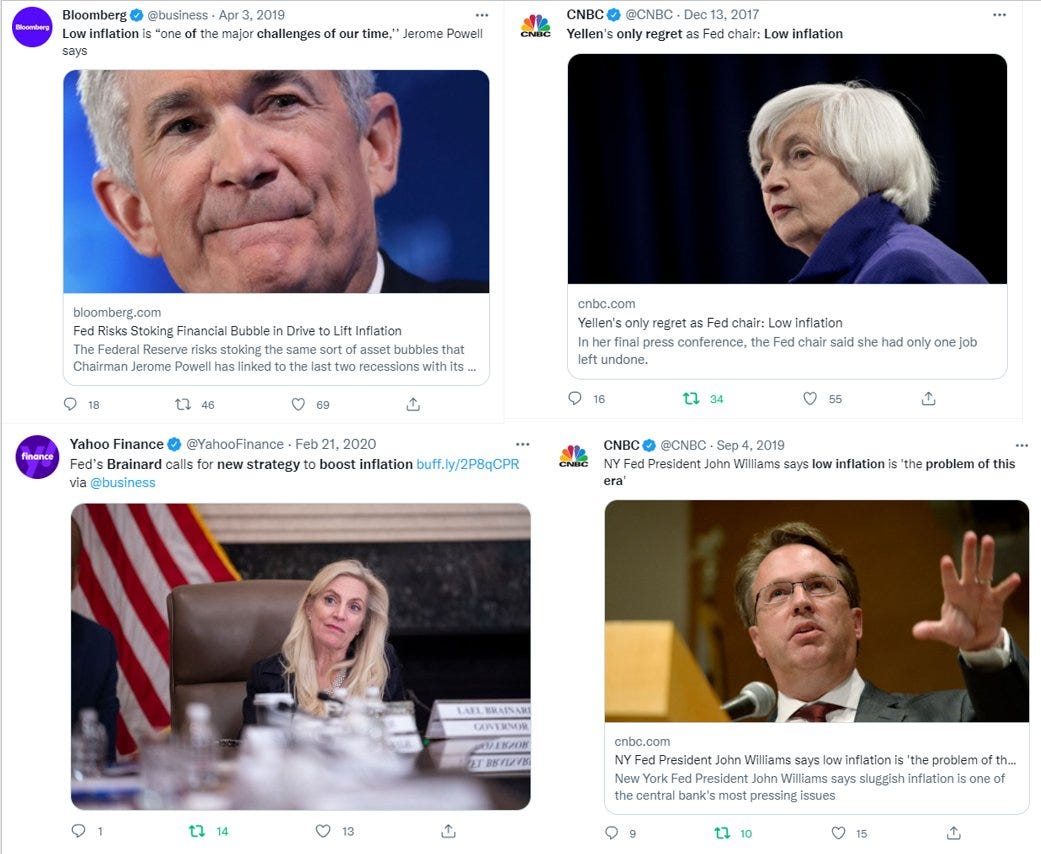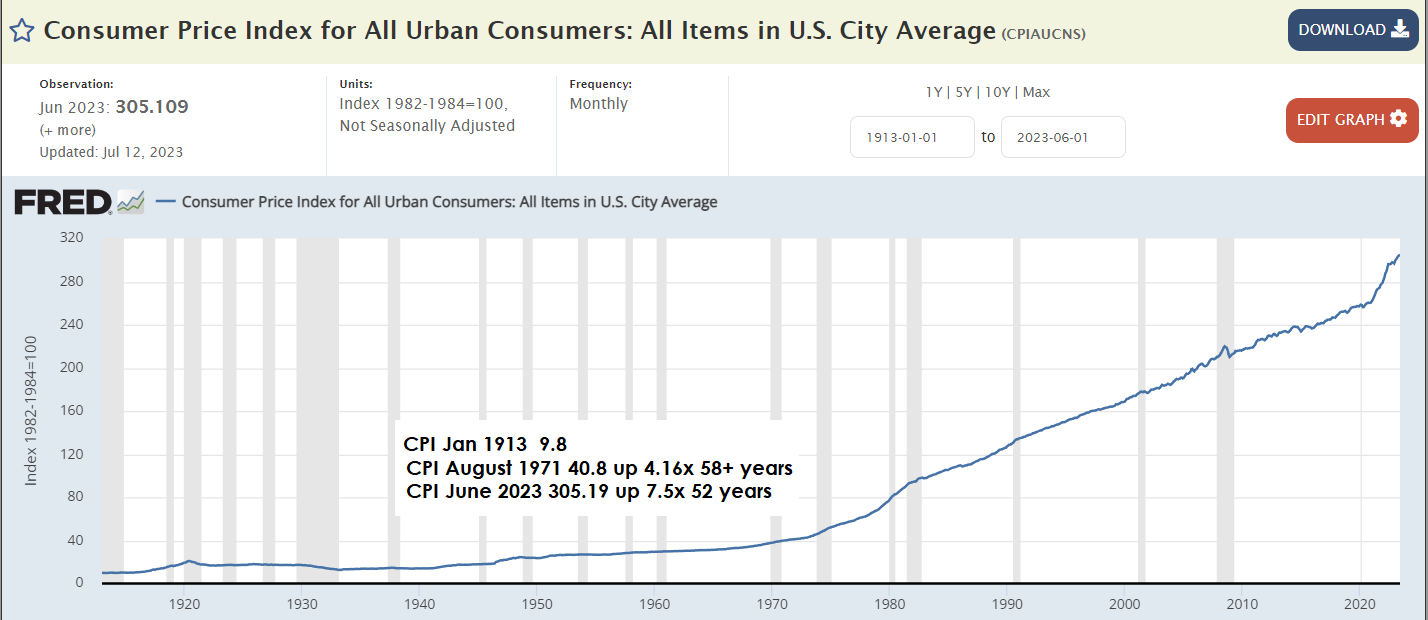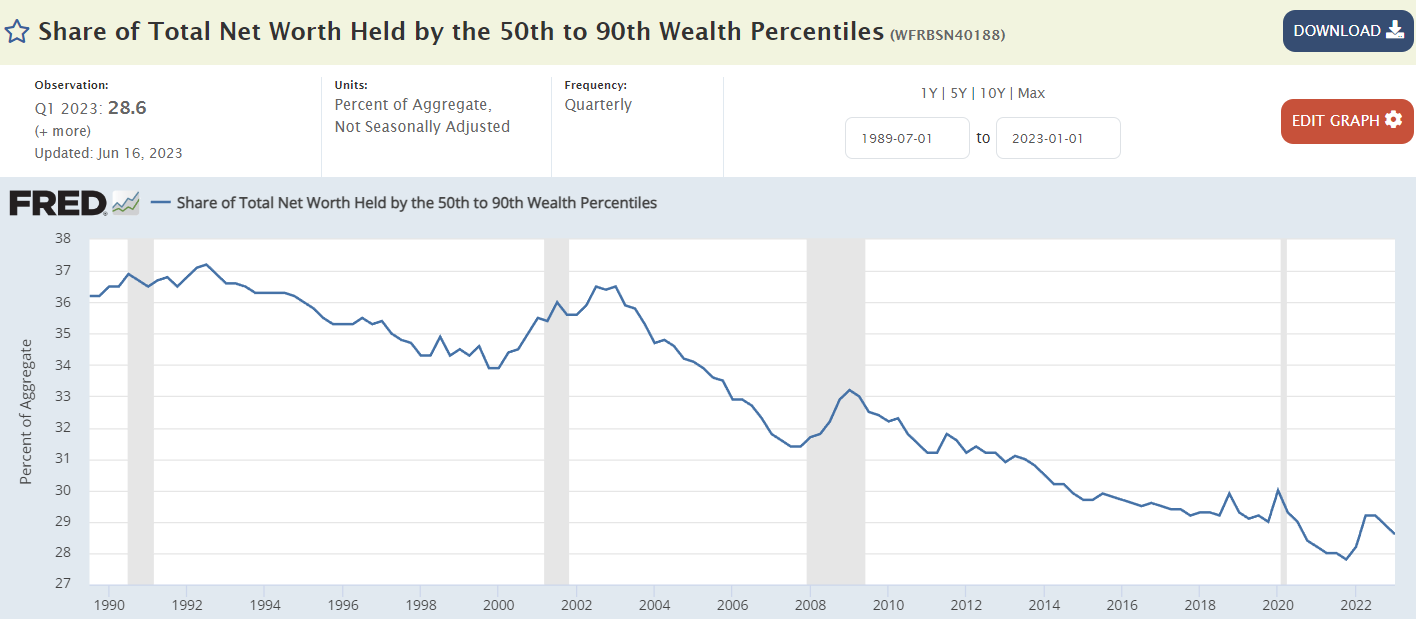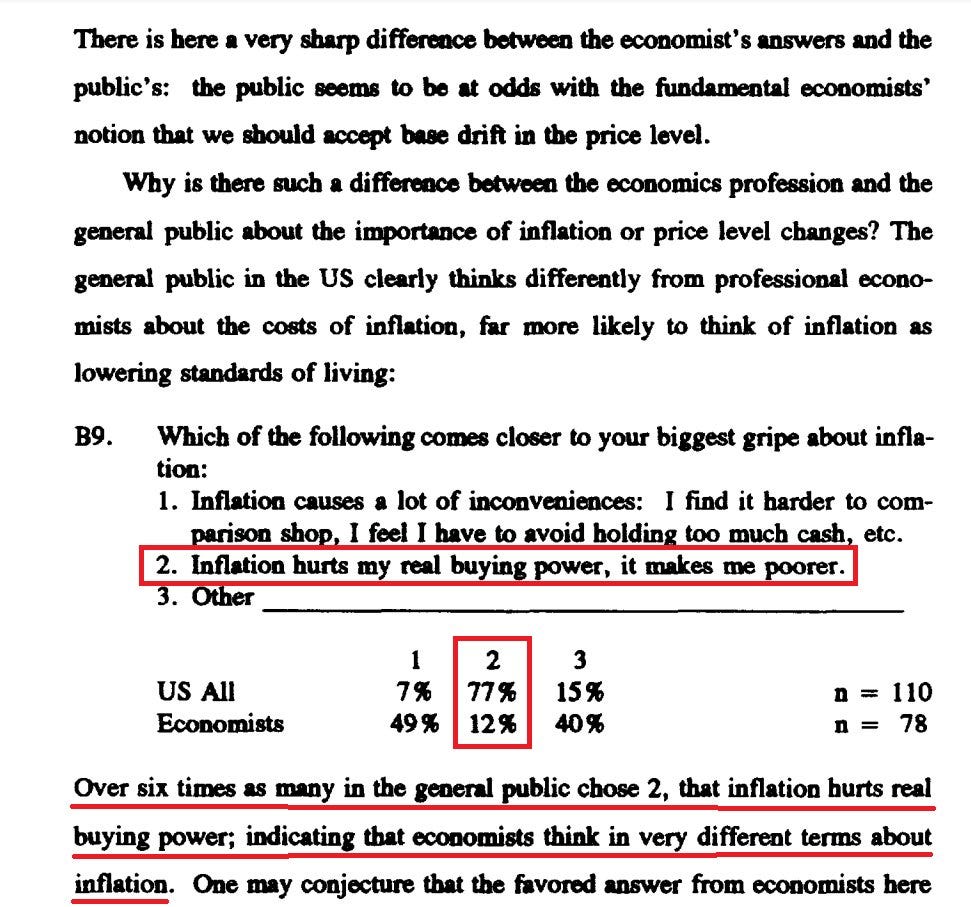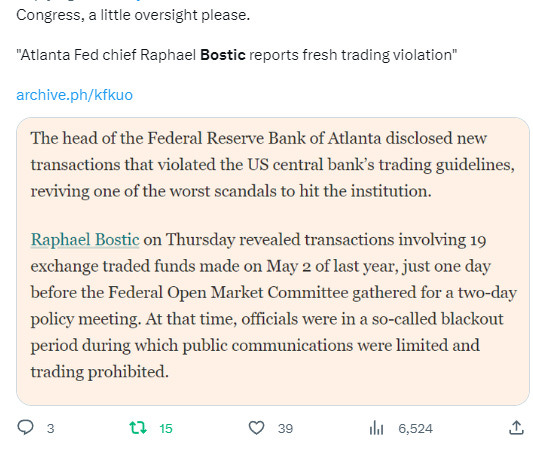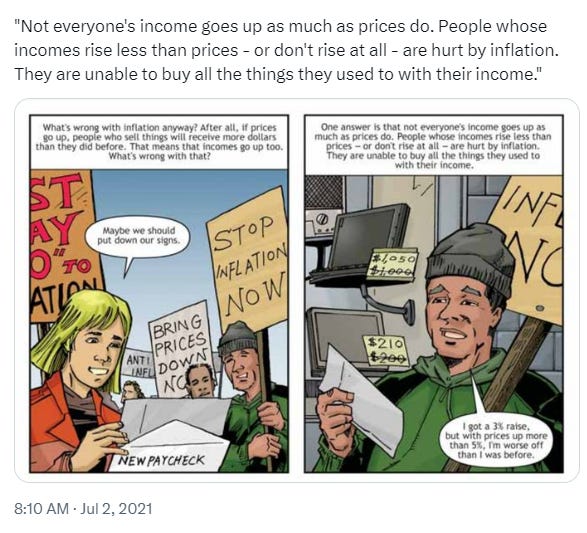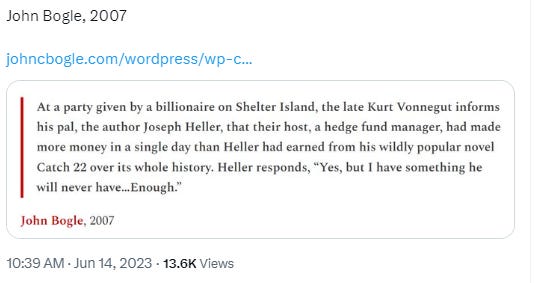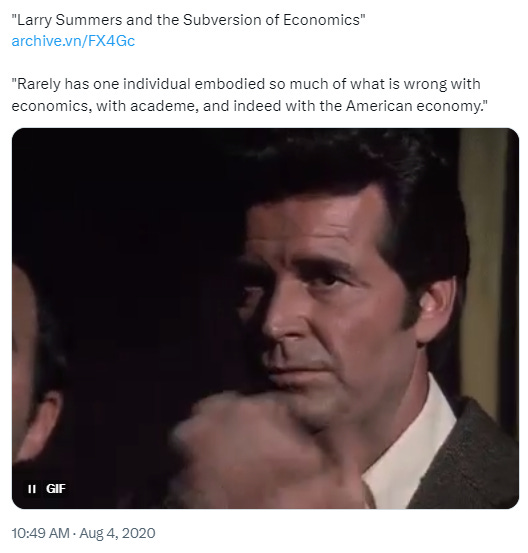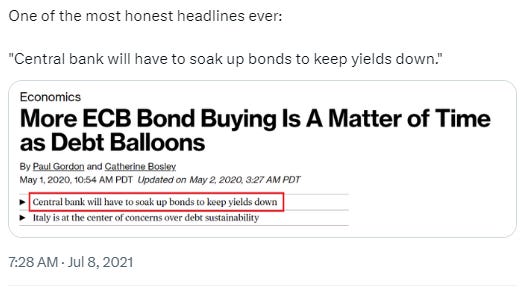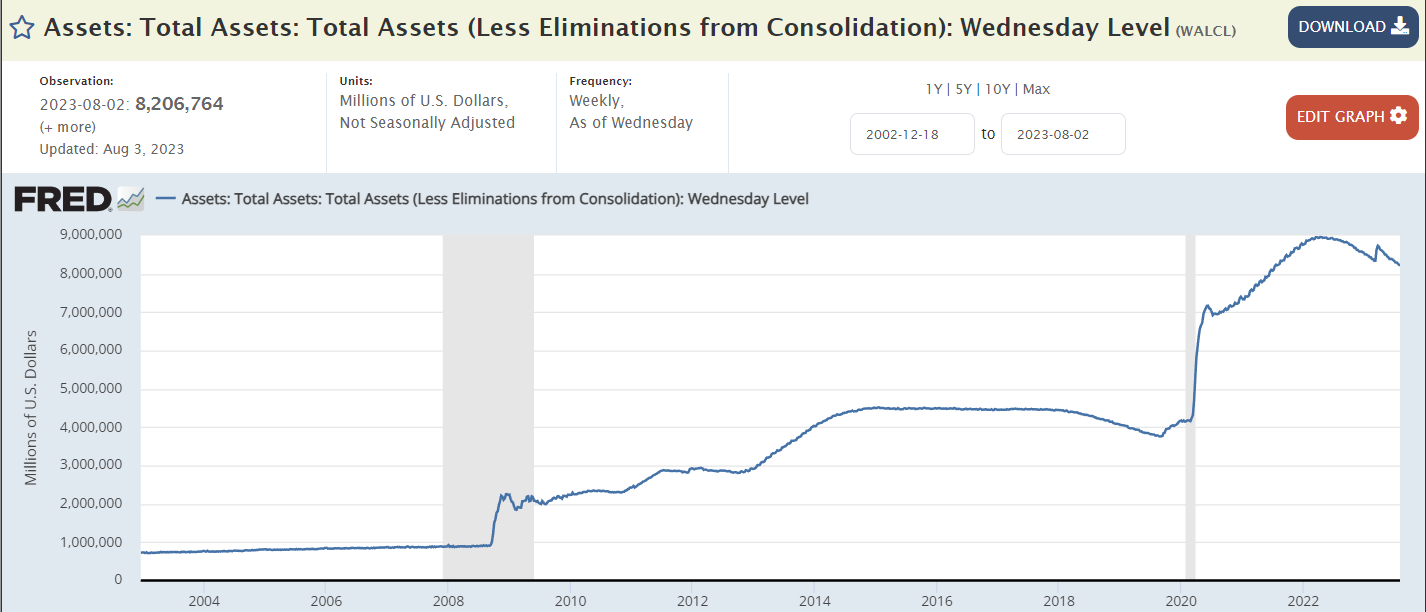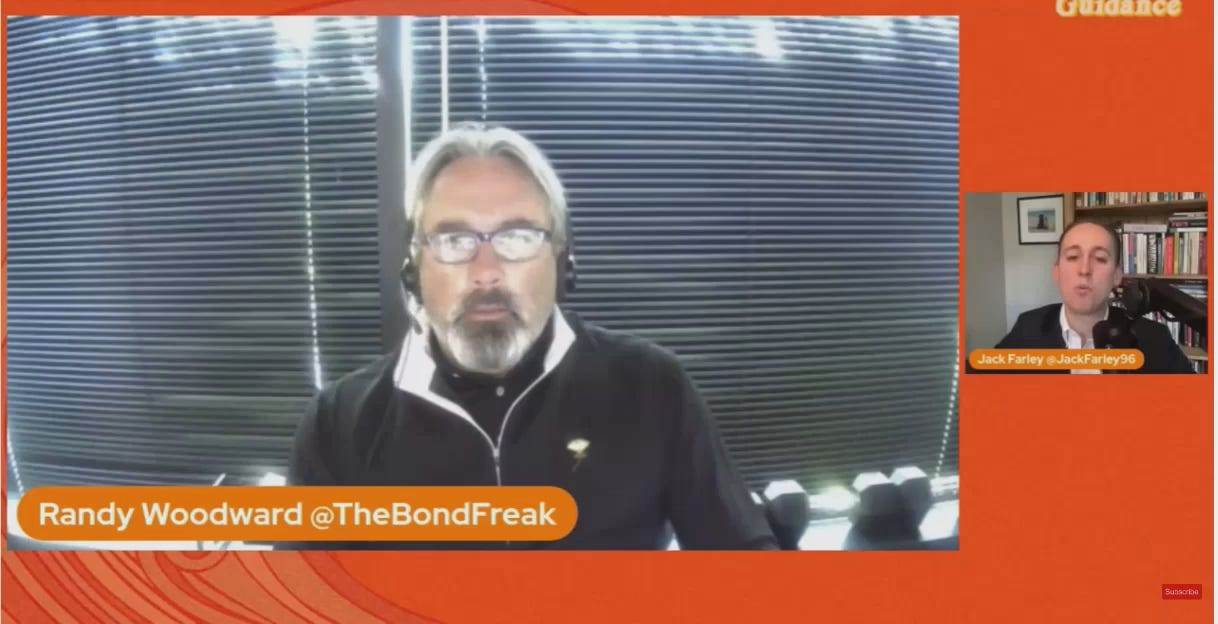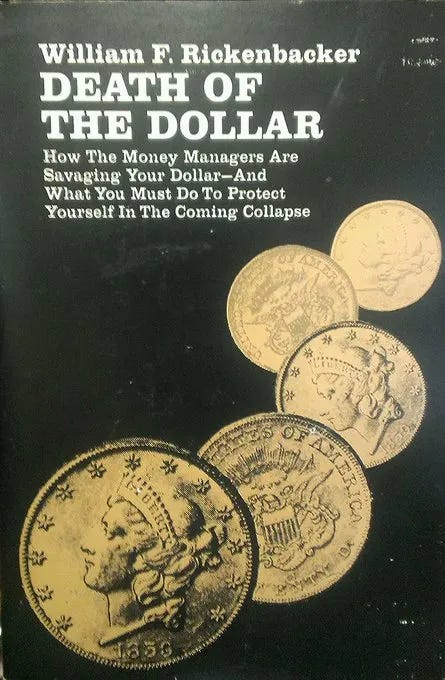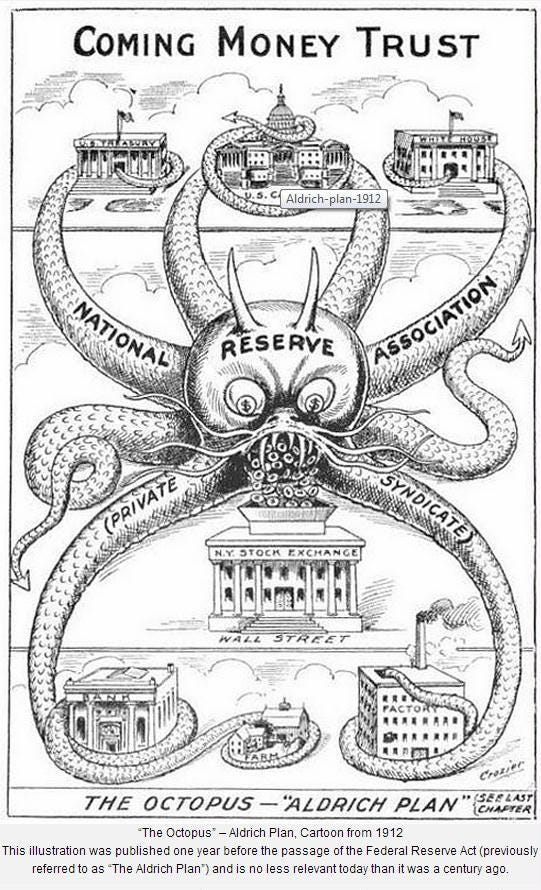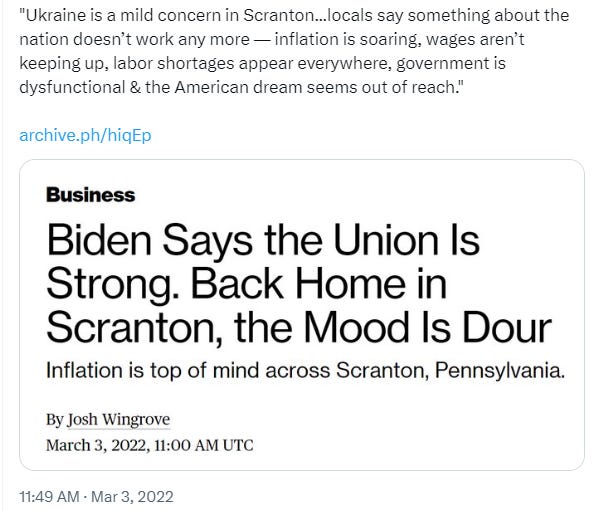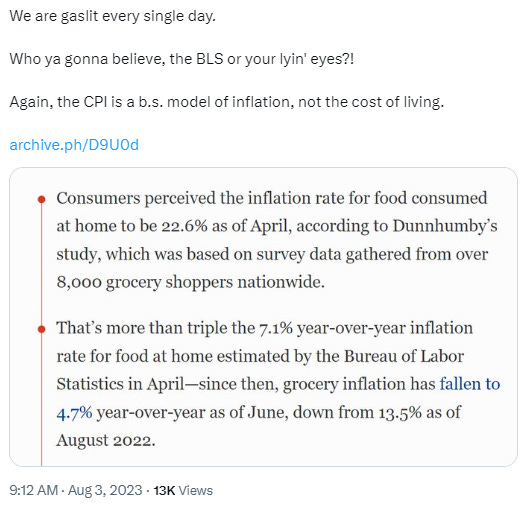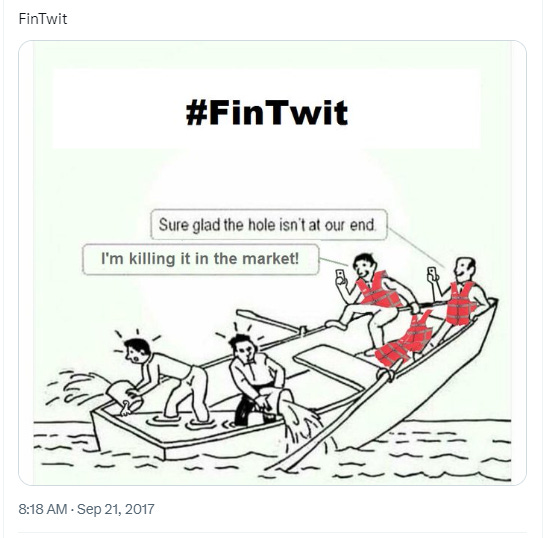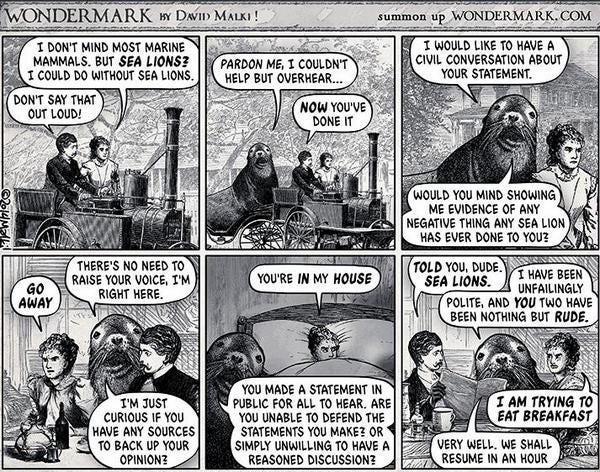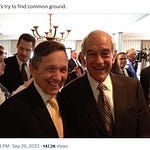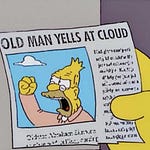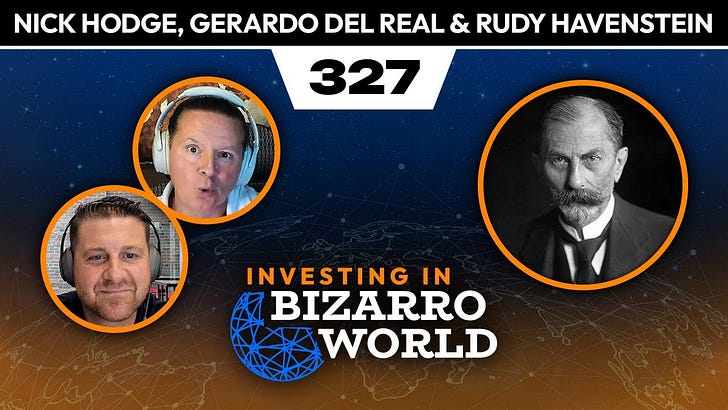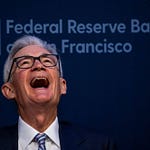Note to subscribers: This may be my last post until late next week. Believe me, there’s plenty to chew on below (and in my Substack.)
Youtube video and Podcast links here.
I did this interview on Monday, August 7th. Thanks to Natalie!
Someone told me I’m depressing, which I don’t mean to be at all, and that makes me sad.
Wait! Today I also got this, which makes me happy!
(I hope it’s intentional)
So below is a stream of consciousness collection of things I mentioned or alluded to in the podcast. Each should have a link (generally in the pictures themselves) and you can explore from there if you wish. Godspeed.
(Let me know if you see any errors…Note that the archive.today site may be down, which is very concerning…)
I’ll start off with a couple unrelated happy thoughts, including the post below I did on the subject of not getting sad over all this…
You always have to hedge that good things might happen.
Unelected and Unaccountable.
Quantitative Easing
"Think about it. If you own a bond, you've got a claim on money, but the claims are too much...You're either not gonna get back that money in full, or you're going to get back money that's worth less, because they print the money."
Book Review: The Price of Time by Edward Chancellor
Chancellor smartly stays away from discussion of moral issues, but does devote significant parts of his book to documenting how unnaturally low interest rates work paradoxically to increase inequality and thus social instability. Many thinkers assume that lower interest rates benefit the poor, who often pay interest to buy the necessaries of life. Whatever benefits accrue to the poor, however, are dwarfed by benefits to the rich. Since rich people are the only ones who have sufficient collateral to borrow massive amounts of cheap money, their first access to the money printer allows them to buy and bid up assets in a virtuous cycle. Borrowing begets bidding which begets price appreciation which begets more collateral for borrowing.
The wealth effect of capital gains starts to price out the poor and middle class from the best neighborhoods, vacation spots, restaurants, spectator events, and other basic pleasures of life, even if consumer goods remain reasonably priced. It’s the reason a Disney family vacation, once a realistic middle class aspiration, now requires a five-figure budget. This type of inequality, amplified by the FOMO of social media, is particularly grating to people who cannot afford the luxuries they see others consuming.
Trust in institutions (rightly) plummets, and the country can pull apart, much as it is doing now, as more people (again, rightly) believe the system is rigged against them.
The Federal Reserve is above the law.
Watch now (1 min) | Just after the 1987 crash...I was chatting with a trader, and he stopped mid-conversation to take a call, scribbled down a big order, and he turned to me and said, "That's the Fed buying futures." Wow. The Federal Reserve's not supposed to do that. -
Stan Druckenmiller explains the Federal Reserve.
Watch now (2 min) | "I don't think there's been any greater engine of inequality than the Federal Reserve Bank of the United States the last 11 years." - Stan Druckenmiller, August 23, 2021
This is why I bash most economists - because they are clueless "Intellectuals Yet Idiots," to quote Taleb. This is from a 1996 paper from Bob Shiller (who's a smart guy):
President Dwight D. Eisenhower's Farewell Address (1961)
Akin to, and largely responsible for the sweeping changes in our industrial-military posture, has been the technological revolution during recent decades.
In this revolution, research has become central; it also becomes more formalized, complex, and costly. A steadily increasing share is conducted for, by, or at the direction of, the Federal government.
Today, the solitary inventor, tinkering in his shop, has been over shadowed by task forces of scientists in laboratories and testing fields. In the same fashion, the free university, historically the fountainhead of free ideas and scientific discovery, has experienced a revolution in the conduct of research. Partly because of the huge costs involved, a government contract becomes virtually a substitute for intellectual curiosity. For every old blackboard there are now hundreds of new electronic computers.
The prospect of domination of the nation's scholars by Federal employment, project allocations, and the power of money is ever present and is gravely to be regarded.
Yet, in holding scientific research and discovery in respect, as we should, we must also be alert to the equal and opposite danger that public policy could itself become the captive of a scientific-technological elite.
It is the task of statesmanship to mold, to balance, and to integrate these and other forces, new and old, within the principles of our democratic system-ever aiming toward the supreme goals of our free society.
Priceless: How The Federal Reserve Bought The Economics Profession (2009)
The Federal Reserve, through its extensive network of consultants, visiting scholars, alumni and staff economists, so thoroughly dominates the field of economics that real criticism of the central bank has become a career liability for members of the profession, an investigation by the Huffington Post has found.
This dominance helps explain how, even after the Fed failed to foresee the greatest economic collapse since the Great Depression, the central bank has largely escaped criticism from academic economists. In the Fed's thrall, the economists missed it, too.
"The Fed has a lock on the economics world," says Joshua Rosner, a Wall Street analyst who correctly called the meltdown. "There is no room for other views, which I guess is why economists got it so wrong."
Look - you worked at the Fed, surely they can't be this stupid?
Watch now (4 min) | [I’ve corrected some dates post-email. Senior moments.] One of my favorite interviews. Thanks to the friends of the show at Realvision. “this is basically permanent debt monetization.” When Boyce made these comments, the Fed’s debt monetization was already up almost $3.6 trillion above 2008 levels. They managed to take it down by $700 billion (15%) by Augu…
"Every single adjustment to CPI calculation has ended up with a lower CPI. No one has ever adjusted it and come up with a higher number. So, we, we know what the adjustments are there for."
- Grant Williams
Subjective BLS Hedonic-Quality Adjustments
Why I pick on Barry Sternlicht
Jim Bullard is a menace to society.
Watch now (2 min) | In case you never saw this, St. Louis Fed President James Bullard, who has been at the Fed since 1990, made these insane comments in January 2020. Bullard explains how the Fed was experimenting on 330 million Americans with "average inflation targeting,"
Great Whitney Webb Interview
Another great article about early Jerome Powell
Bernanke: I think we would like to bring the balance sheet back to something...under a trillion dollars...
Paul. A trillion dollars?
Bernanke. Or less, yes.
Mortgage-Backed Securities Bought by the Federal Reserve Using Electrons (they owned $0 until 2009)
Why did the Fed go insane with the MBS purchases?
Watch now (1 min) | I’ve been railing against the Federal Reserve’s ridiculous monetization of the MBS market forever, lately on Substack. e.g., The Consequences of an Unaccountable Federal Reserve “When they started buying mortgage-backed securities, that was a terrible mistake.”
Published in 1969
The end of a long thread describing hyperinflation (i.e., a currency collapse). Twitter threads are easy to get lost in, so I find it better to start at the bottom and work your way back up.
The end of a thread on the book, “Dying of Money,” from 2016.
A Very Ordinary Life
Published in 1974, A Very Ordinary Life is the autobiographical account of an “ordinary” working-class woman born in 1901 in Berlin, who moved to Canada in 1929. (For personal reasons, I can indirectly relate to this story. I became aware of this book somewhere along the line, probably while reading about the (first)
Having been robbed, the Germans became a nation of robbers.
“Inflation is the way out.” Podcast: The Sovereign Debt Bubble with Luke Gromen “…four to five years of, call it 12 to 18% annual inflation” - to get debt to GDP back to a less insane level. Gromen’s being theoretical here, but I have heard similar comments from finance people seriously advocating this (the people calling for it generally seem to own lev…
SUBCOMMITTEE OF THE COMMITTEE ON BANKING AND CURRENCY, HOUSE OF REPRESENTATIVES, Washington, D. C., Thursday, December 19, 1912
The original John Pierpont Morgan Sr. talks about money vs. credit.
Mr. UNTERMYER. I want to ask you a few questions bearing on the subject that you have touched upon this morning, as to the control of money.
Mr. MORGAN. Yes.
Mr. UNTERMYER. The control of credit involves a control of money, does it not?
Mr. MORGAN. A control of credit ? No.
Mr. UNTERMYER. You do not think so ?
Mr. MORGAN. What I call money is the basis of banking.
Mr. UNTERMYER. But the basis of banking is credit, is it not ?
Mr. MORGAN. Not always. That is an evidence of banking, but it is not the money itself . Money is gold, and nothing else.
Mr. UNTERMYER. Do you not know that the basis of banking all over the world is credit rather than gold?
Mr. MORGAN. It is the basis of credit, but it is not the basis of money.
Mr. UNTERMYER. I say, the basis of all banking is credit, is it not, and not money?
Mr. MORGAN. No; I do not think so .

My “Pinned Tweet”
My ‘how we got here’ thread from 2017
One year before 9/11
"The word Fascism has now no meaning except in so far
as it signifies ‘something not desirable’."
George Orwell, Politics and the English Language
"If there must be trouble, let it be in my day, that my child may have peace."
Thomas Paine
This is an actual Federal Reserve chart, semi-log:
I sometimes get pushback on this topic similar to the letter from Prof. J.P. Stern below, but I’ve studied the contemporary history enough to firmly conclude that Thomas Mann - and Professor Willi Frischauer on the right, below - have the correct conclusion.







